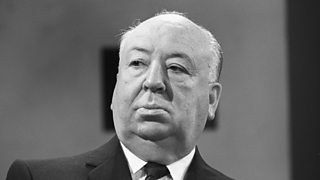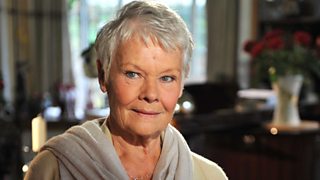Nine things we learned from Sophia Loren's Desert Island Discs
Sophia Loren is an icon of the cinema screen. She was the first woman to win a Best Actress Oscar for foreign language film and has won Italy's highest film prize six times. She has made over 100 films, and has worked with many of cinema’s greats, including Charlie Chaplin, Clark Gable, Gregory Peck, Marlon Brando and Marcello Mastroianni. Here’s what we learned from her Desert Island Discs…

1. Her first disc gave her hope in the years immediately after World War Two
Sophia Loren was born in Rome in 1934 but her early life was spent in Pozzuoli, near Naples in southern Italy, with her mother, sister and extended family. Her first disc takes her back to that time. “It was a song that I heard for the first time in Pozzuoli after the war,” she says. “And of course, I didn't understand anything that she was saying and Ella's voice represented America to me, and to me, America was so far away still at that time… I kept on hearing [this song] on the radio in Italy and Ella Fitzgerald really gave me a sense of life. She was my comfort blanket, she was a musical for my dreams.”
They called me Stechetto, little stick, because I was so skinny
The singer is Ella Fitzgerald and the song is I’ve Got You Under My Skin.
2. Her childhood memories of living through the war still remain strong
Sophia was just five years old at the outbreak of war, but the experience has stayed with her: “We were always in a battle with something. I didn't know what it was - bombing and drama and falling houses and no food at all. And you know, it's incredible because I'm talking about many, many years ago and I still think about these kinds of things like it was yesterday. It's very, very much alive... terrible.”
3. Her second musical choice is a tribute to her mother
“My mother was a concert pianist and would play this piece whenever she could find a piano to play,” says Sophia. “When I think of my mother, I get this feeling inside that is bittersweet. Sweet because she was a wonderful woman and loved her daughters so much, and bitter because she was often sad and unfulfilled.”
The piece is Clair de Lune [Moonlight] by Claude Debussy.
4. She was a teenage ‘toothpick’
When Sophia was 15, her mother entered her into a beauty pageant. Sophia didn’t think of herself as a great beauty, but found herself among the winners: “They called me Stechetto, little stick, because I was so skinny,” says Sophia. The other nickname she recalls is Stuzzicadenti, toothpick. “I was not at all [like] the beauty of today, Italian beauty you know, nice and round. No, not at all!”
5. Sophia believes one role changed her life
In 1954 Sophia was cast in the film The Gold of Naples by director Vittorio De Sica, best known for the film Bicycle Thieves, in what she calls “the perfect role” because it was exactly what she knew. She says: “It was the role of a girl 16 years-old. Neapolitan, no money, no food, the street was her home - and this was the character in the film. And the director was Vittorio De Sica but I didn't know what [acting] was - I didn't know what it was… It was really incredible.”

6. At the age of 22, she was sharing the screen with Frank Sinatra and Cary Grant
The film was The Pride and the Passion, a historical drama in which Sophia played a young Spanish woman. Cary Grant took a great interest in Sophia, going on to become a lifelong friend. And what was it like to work with Frank Sinatra? “He loved his trailer,” she laughs. “Yeah, he would stay in the trailer very often and he never sang on the set, [saying]: ‘No, no, no, no, we are shooting, we are shooting!’” To remind her of that time, and to hear Frank in full voice, she chooses his recording of Fly Me to the Moon.
I was born in Rome but my heart and myself... I am from Naples.
7. She won the Best Actress Oscar in 1962 – but missed the ceremony
Sophia was nominated for her performance in Two Women (or La Ciociara, the original Italian title) directed again by Vittorio De Sica. She was up against, among others, Audrey Hepburn in Breakfast at Tiffany's and Piper Laurie in The Hustler.
Sophia didn’t attend the awards and stayed in Italy “pretending that we were not thinking [what] there was in Hollywood, the Oscars… And De Sica was there with me and the phone rang and a voice said, ‘Hi, it's Cary [Grant].’ I said ‘Yeah?’ ‘Yeah, you won!’ Wonderful moment, wonderful. I mean really, these kinds of prizes… you cannot say words of how you feel. We feel it's impossible because it's unique. It's wonderful. It's great.”
8. Sophia always thinks of herself as Neapolitan
“I was born in Rome by chance,” explains Sophia, “but my heart and myself... I am from Naples. I am from this people and I've always been with them. Rome, yes, beautiful, but my life was in Pozzuoli in Naples, all my childhood. I think that if you are in a place during your childhood, it's a place that you will remember forever.”
Her final choice reminds her, says Sophia “of what it means to be Neapolitan”. It is Caruso by Italian singer-songwriter Lucio Dalla and is loosely based on the life of the great opera singer Enrico Caruso, himself a Neapolitan.
9. Sophia’s choice of luxury item to take to the desert island is a pizza oven
Sophia is allowed to take a luxury item to the desert island, and she asks for a pizza oven. Traditionally, castaways are discouraged from taking anything too practical, but Sophia argues that creating pizza is more than simply making food: “It’s like writing a poem, cooking a pizza… so if you don’t feel like it don’t do it, but if you feel like then you have the time of your life!”






